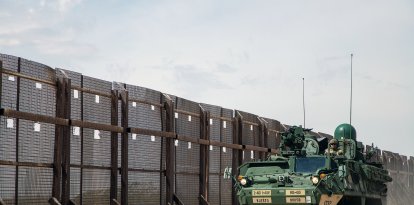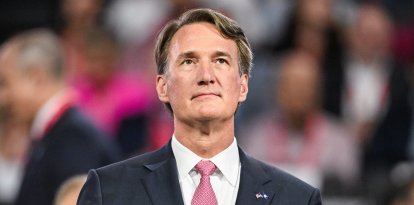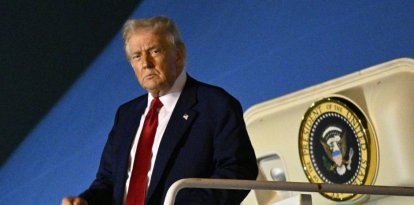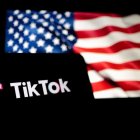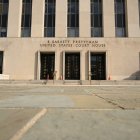Social networks face an unprecedented wave of regulation
Australia, Brazil, the European Union and even the United States have mounted a regulatory effort previously seen only in authoritarian regimes.
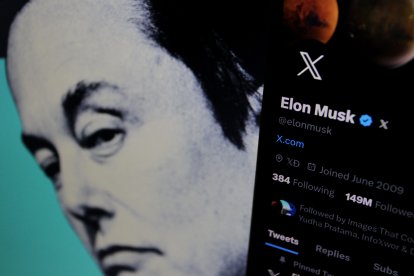
A file image from Elon Musk's X account
This week Australia's Parliament was the protagonist of a debate that has been going on for years, but has now became an inescapable problem: unlimited access of young people to major social networks.
In a highly contested procedure, which certainly received considerable support from Australian citizens, Congress and the Senate passed a law banning the use of social networking sites in record time, with exceptions, for children under 16. Among the affected platforms are Facebook, X, TikTok, Snapchat, Instagram and others. YouTube and messaging apps, including WhatsApp, were left out of the ban.
The law, controversial for some and necessary for others, has further elevated the debate: Is censorship or government restrictions the right way to make social networks safe for the youngest or most vulnerable users? Does it fall on the government to take care of underage citizens and could this ban be the preamble to other measures to besiege social networks and attack freedom of expression?
These are questions, for now, without clear answers. However, for many, the ban on minors under 16 may sound good on paper, but really it does not solve the comprehensive problem of mental health or the dangers that users may face.
"None of the harmful content would be removed. It just kicks the can down the road and throws you into the deep end at 16," Leo Puglisi, a 17-year-old Australian teenager who runs a news site, 6 News, told The New York Times.
Puglisi, who works with a staff full of teenagers, many under 16, further stated that he has no doubt his brother, 14, will find a way around the ban and gain access to social networks again.
According to Australian law, parents and minors will face no punishment if a teenager or child manages to circumvent the ban. Platforms, on the other hand, could be severely punished with fines of up to A$49.5 million (about $32 million) for "systemic" failures to implement the age requirements.
This pioneering measure in the Western world comes at a time when several countries, including the US and Brazil, have taken action against technology platforms, albeit for completely different situations.
For example, next week a U.S. federal appeals court must decide whether to uphold a law passed in Congress that requires China-based ByteDance,to sell or divest itself of TikTok's U.S. assets early next year or face a ban domestically.
The unprecedented law has sparked intense debate in the U.S. over key issues such as free speech, national security, and the increasing exposure of citizens' personal data to foreign powers such as China. It also puts mental health of young people at the center of the discussion, as they currently have unfettered access to a social network whose content ranges from useful, educational and entertaining resources to potentially harmful and dangerous content.
President-elect Donald Trump promised during the presidential campaign that he would oppose a ban on TikTok, which is used by 170 million Americans, many of them using the platform not only for leisure purposes but also to make a living by selling products, becoming influencers or promoting their businesses.
The truth is that the cases of the U.S. and Australia, which have besieged social networks under the argument of being a danger to national security and young people, differ markedly from the crusade against Elon Musk's social network 'X' in Europe and Brazil.

Politics
Telegram CEO's arrest revives fears of social media control: 'Dangerous times'
Juan Carlos Téllez
In 2022, in Europe, the controversial Digital Services Act (DSA) was enacted, which came into force in February 2024 and is being used to threaten X with fines in case the platform does not help eliminate the spread of "illegal content" or improve the transparency of its algorithms, as required by the regulations.
This law has led Musk to publicly clash with the European Union, accusing the commission investigating X of being undemocratic while Brussels has other formal investigations open against U.S. companies such as Meta and its Instagram platform for possible DSA breaches.
The situation between Musk and the EU has escalated so much that even Vice President-elect JD Vance suggested in an interview that Washington shouldn't back NATO if European countries don't respect American values such as freedom of speech.
"TThe leader, I forget exactly which official it was within the European Union, but sent Elon this threatening letter that basically said, ‘We’re going to arrest you if you platform Donald Trump,’ who, by the way, is the likely next president of the United States," Vance said in an interview with youtuber Shawn Ryan.
“So what America should be saying is, if NATO wants us to continue supporting them and NATO wants us to continue to be a good participant in this military alliance, why don’t you respect American values and respect free speech?” Vance asked. “It’s insane that we would support a military alliance if that military alliance isn’t going to be pro-free speech. I think we can do both. But we’ve got to say American power comes with certain strings attached. One of those is respect free speech, especially in our European allies.”
South America, censorship knocks on the door
In Brazil, unlike in the European Union, a progressive judge did not hesitate to intimidate Musk and X employees, even banning the use of the platform in Brazilian territory until X paid million-dollar fines and began to comply with censorship demands by the controversial magistrate Alexandre de Moraes.
That months-long fight between Musk and de Moraes, who forced X to appoint a new legal representative in the country and start suspending accounts linked to conservative President Jair Bolsonaro, resulted in millions of Brazilian users not having access to the planet's leading news and opinion platform, in an unprecedented information siege that is only circumvented through VPNs at the risk of heavy fines against those who dared to use the platform.
Along the way, X had refused to block the accounts at the request of Judge de Moraes, and Musk, a self-described "free speech absolutist," asserted that the bans were an abuse of power by the Supreme Court magistrate.
But, after closing his X office in Brazil and battling for months against the Brazilian authorities, the U.S. billionaire gave in and had his platform reestablished in one of his most important markets.
The Brazilian case is living proof of how a motivated official with power can use laws to generate existential conflicts against social networks, even transcending the legal sphere to reach the political arena.
In Venezuela, a long-established dictatorship, the regime of the socialist Nicolás Maduro went even further, bringing forward a blockade against X, a platform that served as a communication mechanism to circumvent censorship in radio, press and television to denounce the massive electoral fraud of July 28 perpetrated by Maduro himself and his allies.
Perhaps Venezuela is a good mirror to reflect and remember how authoritarian regimes, such as China, Iran, Cuba or Russia, are threatened by the freedom of expression emanating from social networks and why there are notable dangers behind some regulations that exceed the limits of sanity.
RECOMMENDATION


